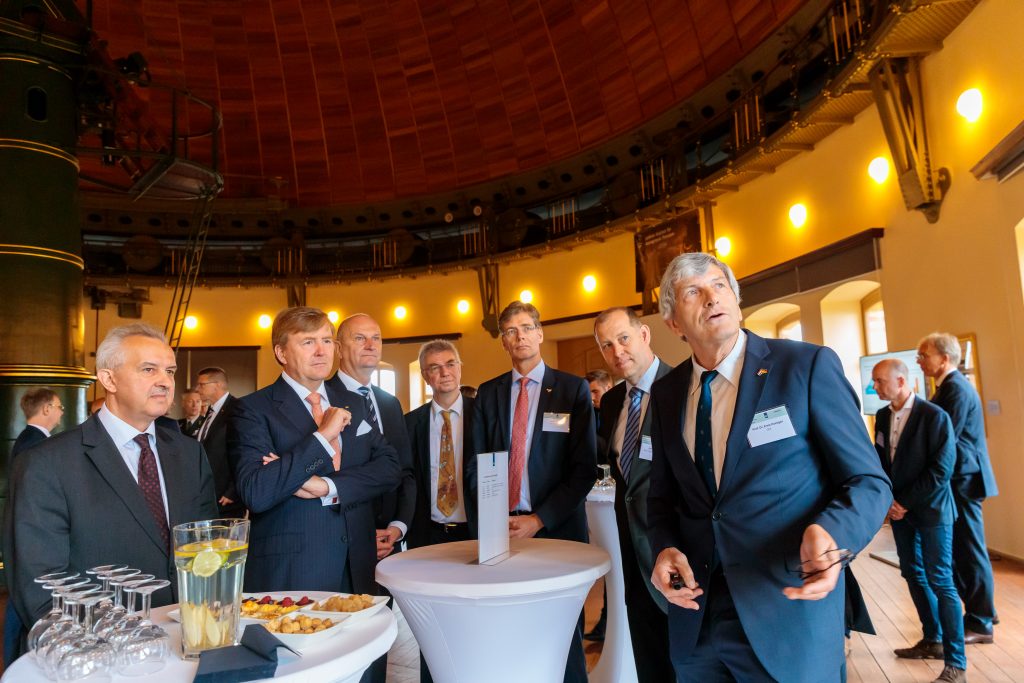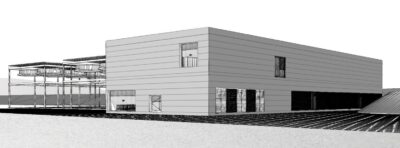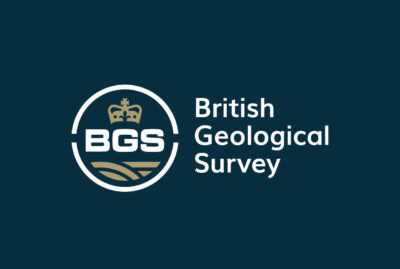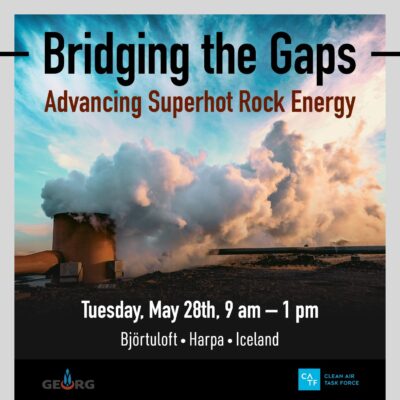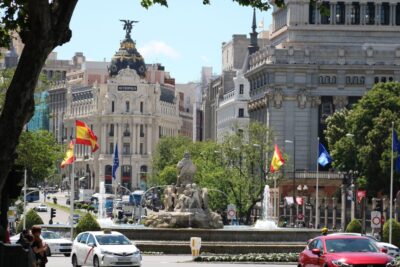Dutch-German cooperation agreement on geothermal research signed
During a working visit of King Willem Alexander and Queen Maxima to Germany, TU Delft and the German Research Centre for Geosciences (GFZ) signed a cooperation agreement on geothermal energy research.
King Willem-Alexander and Queen Máxima of the Netherlands this week visited the Albert Einstein Science Park on Potsdam’s Telegrafenberg during their stay in the State of Brandenburg.
AIP Chairman Matthias Steinmetz, the “host” of the Refractor Hall, welcomed the royal couple: “For almost 150 years, the Telegrafenberg has not only stood for the exploration of our planet and its place in the cosmos, it has also been a place for international cooperation and interdisciplinary scientific discourse ever since.”
The highlight of the one-hour visit was the ceremonial signing of two cooperation agreements between the GFZ and the Technische Universiteit Delf (TU Delft) as well as the PIK and the Vrije Universiteit Amsterdam. The GFZ and the TU Delft are planning a long-term strategic cooperation, among other things in the fields of geothermal energy, heat storage and further underground storage possibilities. This also includes access to the GFZ’s Groß Schönebeck geothermal research platform and to a research facility on the TU Delft campus.
GFZ Chairman Reinhard Hüttl: “The GFZ and TU Delft have been working together in a focused and extremely fruitful manner for more than six years. We now want to consolidate this. It is particularly significant for us to start this new phase of our cooperation that will further integrate and strengthen European research on the energy transition in the presence of the King and Queen of the Netherlands“.
The PIK and the Vrije Universiteit Amsterdam will intensify their research cooperation in the field of extreme events with the cooperation agreement. In particular, it is planned to use methods of machine learning to better predict extremes. This will be achieved by combining data-driven approaches with current climate computer simulations.
PIK Director Ottmar Edenhofer: “Climate change does not stop at national borders. That’s why climate research must be carried out across borders – as must climate policy. If the sea level rises with climate change, this means special risks for the Netherlands. In stabilising our climate, the Netherlands can be an important partner in a pioneer coalition for an effective pricing of the greenhouse gas CO2”.
As part of the royal visit, a full-day meeting took place between a delegation of scientists and entrepreneurs from the Netherlands and representatives of GFZ and PIK on the energy supply of the future. At six thematic tables in the Great Refractor, the royal couple could inquire about research in the fields of geothermal energy and underground storage of cold and heat in urban areas, Carbon Capture Utilization and Storage (CCUS) (all three with GFZ participation) as well as effects of climate change/extreme events, advantages and challenges of decarbonisation outside the energy sector, and transformation pathways and policies for the decarbonisation of the energy system (all three with PIK participation).
“I am very pleased that the royal guests from the Netherlands today visited this unique research campus on Telegrafenberg“, said Minister-President Dietmar Woidke. “The discussions and encounters have made clear the many points of contact that connect researchers in Germany and the Netherlands. The three institutes, of which the state of Brandenburg is rightly proud, are leaders in the German and international research landscape. They have contributed to Potsdam’s international reputation and recognition and to the fact that its name stands for the high quality of scientific research. The royal couple underlined this with their visit today“.
Joint press release of GFZ, PIL, and AIP
